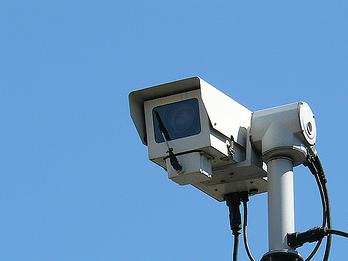Road rage, graffiti in upgraded CCTV sights

Road-rage drivers, sexual predators and graffiti vandals will be targeted under trials of high-tech surveillance software in the City of Ipswich.

(CCTV camera image by Mike Fleming, CC2.0)
Home-grown technology including facial recognition and behavioural analysis will be used to monitor footage from the city's 200 CCTV cameras in tests that will determine if the technology could reduce staff observation of video feeds, and thereby cut down human margin of error.
The cameras monitor the entry and exit of every nightclub as well as transport hubs such as bus stops, taxi ranks and train stations in the seven neighbouring suburbs, with a large cluster in the Ipswich CBD.
Ipswich security adviser Stacey Kirmos said that one of the National ICT Australia-developed systems will include a platform capable of detecting road-rage patterns using cameras along 4 kilometre highway corridors.
"If we see a car weaving in and out, we will take their rego [registration] and a police car will pick them up," Kirmos said.
"The technology could identify a gathering of known graffiti [vandals] and we could send a patrol to prevent vandalism or intervene.
"If the cameras can pick up a known serial offender in a crowd walking in the city, then we can keep an eye on them and pass the information to police."
Behavioural analysis technology will be used to mitigate violence around the city's busy nightclubs by identifying potential fights, while facial recognition will pinpoint suspects who commit crime in CCTV blackspots and pass through the surveillance network.
Another technology will identify possible suspect objects left unattended around the city.
Kirmos said the trials will be the first of its kind in the world and will aim to avoid the huge staffing requirements of the massive CCTV network.
The hard evidence of surveillance footage has lead to some 9500 convictions from 15,000 arrests and saved the Queensland Government "many millions" in legal costs, according to Kirmos. He said crime has dropped by more than 75 per cent in monitored areas since the inception of CCTV in 2004.
"We need to be very careful that we use it only for what we intend to do ... [but] instability is what is concerning people in the community today," Kirmos said.
Ipswich City covers an area of 1090 square kilometres and has more than 150,000 people.